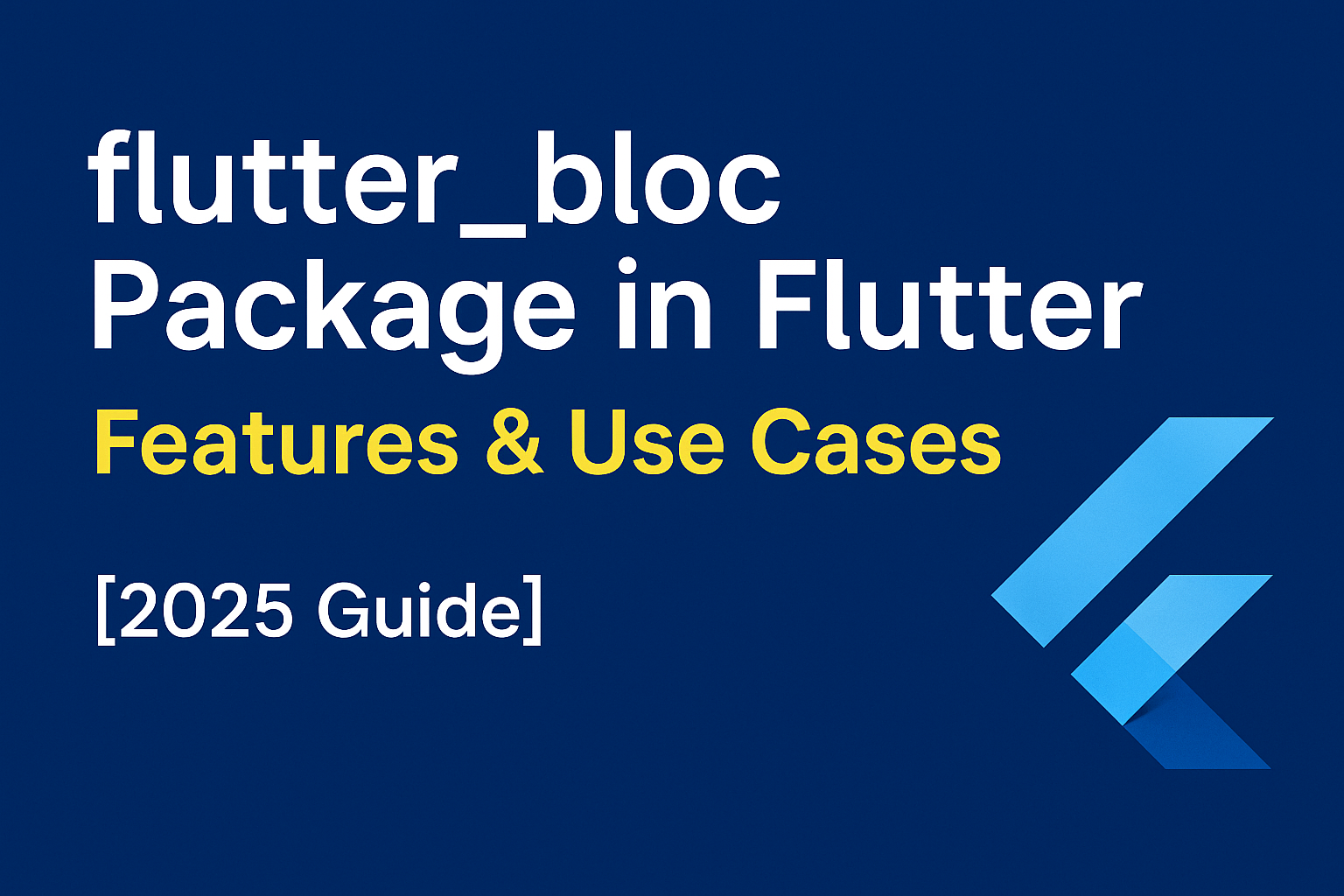flutter_bloc Package in Flutter – Features & Use Cases [2026 Edition]
The flutter_bloc package has become one of the most trusted state management solutions in the Flutter ecosystem. It brings clarity, reusability, and scalability to your app’s architecture. As we enter 2025, let’s explore how flutter_bloc remains highly relevant, what features it offers, and the best use cases where it truly shines.
What is flutter_bloc?
flutter_bloc is a state management library that uses the BLoC (Business Logic Component) design pattern. It helps separate presentation from business logic, making your app more testable and maintainable.
This package builds on top of the bloc library and provides integration with Flutter widgets.
Key Features of flutter_bloc
1. Predictable State Management
- States transition in a well-defined and predictable manner.
- Each action results in a clear output state.
2. Built-in Testing Support
- Easily unit test both the bloc and UI components.
3. BlocProvider & MultiBlocProvider
- Simplifies bloc injection in widget trees.
4. BlocBuilder, BlocListener, BlocConsumer
- Efficiently rebuild and listen to widget updates only when needed.
- Separate listening from UI rendering.
5. HydratedBloc Support
- Persist bloc state across app restarts using
hydrated_bloc.
6. Improved Dev Experience
- BlocObserver to monitor state transitions and event flow.
Common Use Cases for flutter_bloc
Form Handling
Manage input validation, button states, and submission success or failure.
Authentication Flow
Handle login, registration, and user sessions across multiple screens.
Theme & Locale Switching
Dynamically change app themes and languages based on bloc state.
Complex Navigation
Drive conditional routing based on app state.
API Integration
Manage API calls, loading states, and error handling using separate events and states.
Real-Time Updates
Perfect for apps with sockets, Firebase, or data streams.
Best Practices
- Keep business logic out of the UI.
- Use
BlocSelectorto minimize rebuilds. - Avoid placing heavy logic inside event handlers.
- Use
Equatablefor state comparison. - Handle exceptions gracefully in
mapEventToState.
Getting Started: Installation
Add the latest version to your pubspec.yaml:
dependencies:
flutter_bloc: ^8.1.3
equatable: ^2.0.5
Basic Code Structure
CounterBloc Example
// event.dart
abstract class CounterEvent {}
class Increment extends CounterEvent {}
class Decrement extends CounterEvent {}
// state.dart
class CounterState extends Equatable {
final int counter;
const CounterState(this.counter);
@override
List<Object?> get props => [counter];
}
// bloc.dart
class CounterBloc extends Bloc<CounterEvent, CounterState> {
CounterBloc() : super(const CounterState(0)) {
on<Increment>((event, emit) => emit(CounterState(state.counter + 1)));
on<Decrement>((event, emit) => emit(CounterState(state.counter - 1)));
}
}
Frequently Asked Questions (FAQ)
Yes, it scales well with complex apps due to its separation of logic and UI.
If your app requires structured event-driven logic and maintainability, flutter_bloc is the better choice.
Yes, by using the hydrated_bloc package.
Technically yes, but combining them is rare and generally not recommended unless necessary.
Use BlocObserver and logging to track transitions and errors in development.
Final Thoughts
As of 2025, flutter_bloc continues to be a go-to solution for production-ready apps needing powerful, testable, and structured state management. Whether you’re building a form-heavy app, a chat application, or an admin dashboard – flutter_bloc has proven to be a dependable backbone for state handling.


